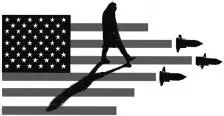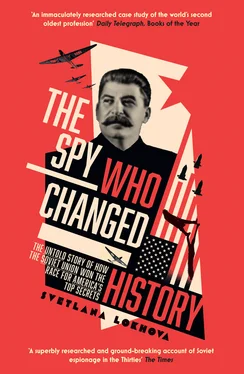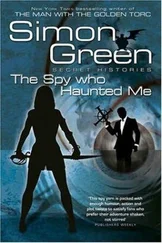1 ...8 9 10 12 13 14 ...21 The White Army and the Black Baron
Are preparing to restore to us the Tsar’s throne,
But from the taiga fn11to the British seas
The Red Army is the strongest of all!
But the feared Baron Wrangel could only hole up with what remained of his beaten forces in Crimea to await his inevitable exile. Lenin decided the time was now right to seize Baku’s oil wealth. The 11th Army – into which Shumovsky had been transferred – was given the task of supporting a planned workers’ uprising. The tide of war had turned, bringing him home.
• • •
Following the Turkish withdrawal, the British had returned in force, determined to stay in the region. They found Baku, a once beautiful town which had fallen into decay, much to their liking. When oil was discovered at the end of the nineteenth century, the city had become almost overnight one of the wealthiest on earth, with every famous European luxury store opening a branch on Baku’s elegant tree-lined avenues. British naval officers requisitioned the oil barons’ magnificent palaces and villas as they set about building a strong naval force to control the Caspian Sea. The ruthless British tactics involved first disarming their allies before moving out to attack the weak Red Navy. The Communist flotilla in the Caspian Sea was no match for the better-equipped British-backed forces. The British complained to London that the Reds refused to come out of port to fight them. But by March 1920, on Winston Churchill’s orders, the British were long gone, and the region was a ripe plum ready to fall into Communist laps. The opposition, such as it remained, was deeply divided. The Whites refused to countenance any rapprochement with the Nationalists. Independent Armenia, Georgia and Azerbaijan dissipated their energies fighting territorial disputes between themselves. Each was in a state of financial and economic collapse. Epidemics of typhus raged unchecked, brought in by the hordes of refugees from the fighting. Just days after the campaign started, and without firing a shot, Shumovsky and the victorious 11th Army were marching down the streets of Baku. Soon Lenin was preparing a grander plan to establish Soviet power over the whole Caucasus region.
On his eighteenth birthday, 9 May 1920, his very first opportunity to do so, Stanislav Shumovsky became a full member of the Soviet Communist Party. He was to remain an active Party member for the rest of his life, earning the right to one of the first fifty-year anniversary membership medals awarded. fn12 53
Although the government in Baku had no stomach for a fight with the Reds, many in Azerbaijan were not so eager to abandon their religion and embrace the ideals of Communism. Civilian revolts and mutinies centred on the old capital of Ganja. Shumovsky’s army was tasked with suppressing the revolts in Azerbaijan and Dagestan, dangerous counter-guerrilla operations. On the hot summer’s day of 3 July 1920, as he was slogging up the mountain roads at Agdam at the head of his unit, advancing towards his hometown of Shusha, Shumovsky suffered his third and most severe wound when he was shot through the neck. 54During his recuperation, the 11th Army mopped up all remaining opposition to Communist rule in the Caucasus in Georgia, Armenia and Azerbaijan. The agonies of the Civil War were over.
• • •
As an able, committed soldier, Shumovsky would serve in the Red Army for a further six years, 55taking on increasingly important administrative roles in major cities across the Soviet Union. He married Vera, and in 1922 they had a daughter, Maya. 56In December 1924, he transferred to Smolensk to fulfil his childhood dream – for in the spring of 1925, Shumovsky climbed into the front pilot’s seat of a two-man Polikarpov R-1 at an airfield of the newly formed Red air force at Smolensk. 57The mechanic spun the propeller and the engine coughed into life. Turning the aircraft into the wind, Shumovsky pointed its nose down the long grass runway, revving the motor. Opening the throttle close to maximum, he waited for sufficient speed to finally pull back on the stick to adjust the flaps, giving the plane enough lift to gently rise off the ground. With a broad grin spread across his face, Shumovsky had joined his boyhood band of heroes as a pilot. His observer reached forward to pat him on the head, congratulating him on his first successful take-off.
For nine months, Shumovsky would learn first to be the observer and then the pilot in the 2nd Independent Reconnaissance Squadron. He flew in the R-1, the first new aircraft built in the Soviet Union after the Revolution and the first Soviet plane ever sold for export. 58The R-1 set the tone for future Soviet aircraft development. It was a copy of a captured de Havilland DH-9, but with substantial improvements on the original British plane. The Soviets lacked a design for a powerful aircraft engine and the ability to make them in large numbers. They had no access to the advanced aluminium moulding necessary to build powerful but lightweight engines. Old motors were bought abroad for the first aircraft and eventually copied in large numbers. The fuselage design was adapted to Russian conditions and materials, mahogany being replaced with local wood. The Russian plane was more robust and less powerful than its Western brother, but over 2,400 were built cheaply in a decade. 59
Shumovsky clocked up many happy hours as a pilot in the skies over Smolensk and many more over a nine-month period as the rear-seat observer. But a crash brought an abrupt end to his flying career. He walked away, but the impact had damaged his left arm so seriously he was unfit to be a pilot. In the mid-1920s he sent his family a photograph of himself in uniform. His brother Theodore noticed ‘the three rhombuses on the lapel collar’. 60Aged just twenty-five, Stanislav was already an army commander. He had reached a rank equivalent to what we would understand today as a full general. fn13His final military posting was to the prestigious Kronstadt naval base at the electro-mining school of the Baltic fleet, alma mater of fellow spy Arthur Adams. 61After the Kronstadt assignment, Shumovsky transferred into the military reserves and became the Ministry of Finance’s head investigator for military affairs. 62
Shumovsky’s letter was not the only surprising communication sent to the Caucasus. In 1926, eight years after her apparent death a letter arrived from his mother saying that she was still alive in Warsaw and earning a livelihood giving music lessons in private homes. One of a vast number of refugees displaced by war and trapped outside the Soviet Union, she was unable to return home, as tension between the USSR and Poland was at an acute level. When the demand for music lessons dried up, Amalia moved to Łódz′, where she had to work as a weaver. It was only in 1932 that she was able to return to the Soviet Union and finally live close to her family in Moscow. Broken by her experiences, she died soon afterwards; her only consolation was knowing that, in a time of blood, chaos and disaster, her eldest son had followed his beliefs and achieved great success. 63

2
‘WE CATCH UP OR THEY WILL CRUSH US’
The Communist victors of the Russian Civil War inherited a ruined and backward land surrounded by enemies. By 1921, the level of the country’s economic activity had plunged to less than a quarter of that in 1913. Agricultural production had tumbled to a point where it was insufficient for the country to feed itself. The Communists were big dreamers, but their initial grandiose projects to modernise the transport network at a stroke by buying thousands of railway locomotives abroad and carrying out a national electrification scheme were soon scaled back when no foreign nation would advance them credit. In frustration, the leadership turned once more to their political vanguard and gave them a new task. The country had to be rebuilt and modernised and the Party’s elite was to bring to the factory floor the energy, drive and commitment responsible for the successes on the battlefield. Men like Shumovsky left the Red Army to lead the drive for industrialisation. The zealots were assigned to central roles in industry to replace the old, tired management teams.
Читать дальше













